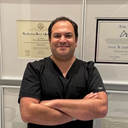Posted underFacelift q&a
Answers (26)
From board-certified doctors and trusted medical professionals
Dr. Stephen Prendiville, MD

SM
Dr. Stephen Prendiville, MD
Board Certified Facial Plastic Surgeon
Answer
Dr. Amir Nakhdjevani, MBBS, MRCS, FRCS(Plast)

AF
Dr. Amir Nakhdjevani, MBBS, MRCS, FRCS(Plast)
Specialist Registered Plastic Surgeon
Answer
Dr. Jonathan Kulbersh, MD

JM
Dr. Jonathan Kulbersh, MD
Board Certified Facial Plastic Surgeon
Answer
Dr. Christian G. Drehsen, MD

CM
Dr. Christian G. Drehsen, MD
Board Certified Plastic Surgeon
Answer
Dr. P. Daniel Ward, MD

PM
Dr. P. Daniel Ward, MD
Board Certified Otolaryngologist
Answer
Dr. David Gilpin, MD

DM
Dr. David Gilpin, MD
Board Certified Facial Plastic Surgeon
Answer
Dr. John Michael Thomassen, MD

JM
Dr. John Michael Thomassen, MD
Board Certified Plastic Surgeon
Answer
Dr. Darren Smith, MD, FACS

DF
Dr. Darren Smith, MD, FACS
Board Certified Plastic Surgeon
Answer
Dr. Robert M. Tornambe, MD

RM
Dr. Robert M. Tornambe, MD
Board Certified Plastic Surgeon
Answer
Dr. John L. Burns Jr., MD

JM
Dr. John L. Burns Jr., MD
Board Certified Plastic Surgeon
Answer
More Facelift Questions
See all Facelift Q&A
WE SEND PRETTY
EMAILS
What’s trending? Who’s turning heads? Which TikTok myths need busting? We’ve got you. No fluff, no gatekeeping—just real talk. Get our free, unfiltered newsletter.





